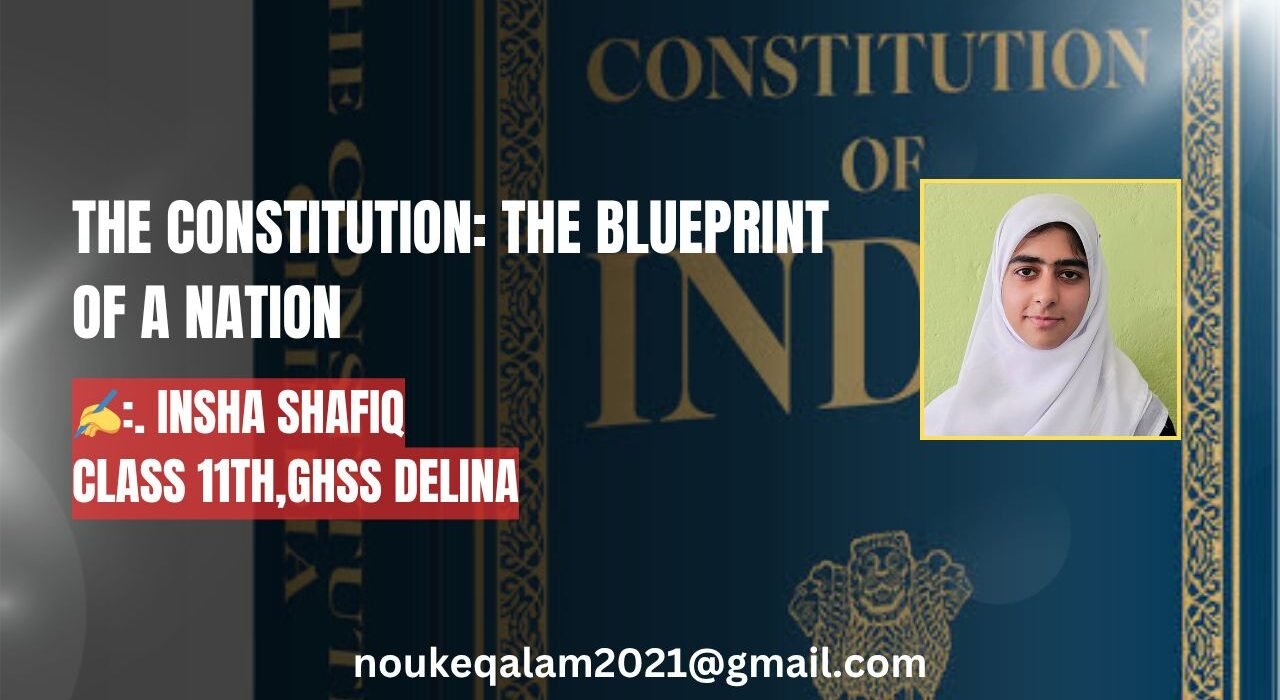Class 11th,GHSS Delina
“What a user’s manual is to a machine, the constitution is to a country.” — Qazi Syed Sajad
The word Constitution is derived from the Latin word “constituere,” which means “to establish,” “to set up,” or “to arrange.” In the context of a nation, the constitution refers to a fundamental set of rules and principles that establish the framework of the government and define the rights and duties of its citizens.
A constitution acts as the supreme law of the land, guiding how a country is governed. It lays down the structure of the government, allocates powers to various institutions, and safeguards the liberties of the people. It ensures that no one—even a leader—is above the law.
Now that we understand what a constitution is, the question arises: Why do we need a constitution? Is it truly necessary to run a country?
The need for a constitution becomes clear in countries like India, where diversity is a key challenge. With so many languages, religions, cultures, and traditions, it is essential to have a set of universally agreed-upon rules. A constitution helps maintain coordination among members of a diverse society by offering common principles to live by.
One of the constitution’s most vital roles is in limiting the powers of the government. Without these checks, the government may pass unjust laws that could restrict fundamental freedoms such as speech and expression. The constitution also promotes decentralization by clearly establishing the hierarchy and division of powers between central and local bodies.
Furthermore, the constitution enables the government to fulfill the aspirations of the people. It reflects the identity of a nation and unites its citizens under shared values. It also guarantees fundamental rights, giving people legal grounds to demand justice and equality.
In conclusion, the constitution is the most important document for any country—whether democratic or not. However, while the constitution provides a basic framework for governance, it must not remain completely rigid. As societies evolve, so too must their constitutions. Timely amendments, greater clarity, and responsiveness to new challenges help the constitution remain relevant in changing times.
As mentioned at the outset, everything—from a simple gadget to a complex machine—requires a manual. So how can a large human population and a complex political system function without one?
Lastly, I would like to express my heartfelt gratitude to my Political Science lecturer for guiding me in writing this article.






